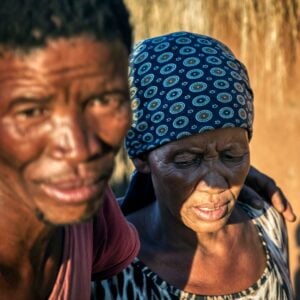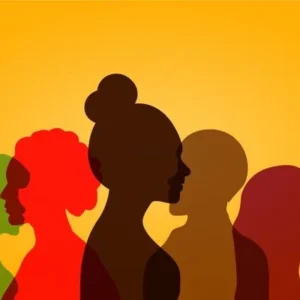In December 2019, Rhoda Chechepus narrowly escaped a life-threatening fire set in her hut by her husband, a culmination of years of domestic violence. At the age of 32, the mother of three from Katukumwok village in Amudat District carries both physical and emotional scars, which ultimately motivated her to leave the abusive marriage six years ago. Facing the additional challenge of having no land to cultivate, Rhoda struggled to provide for her children amid the relentless violence.
When she sought help from her clan elders, she was advised to endure the abuse because her husband had paid a dowry. Amid this hardship, one of her uncles offered her a small piece of land to grow food, while she also benefited from the Northern Uganda Social Action Fund (NUSAF), receiving a modest grant that enabled her to build a small grass-thatched house away from her husband.
In early 2021, Rhoda learned about the Spotlight Initiative through a friend involved in the “Make Happiness, Not Violence” project, implemented by the Communication for Development Foundation Uganda (CDFU) with EU funding. Through counseling sessions and guidance from CDFU, Rhoda was connected to the National Association of Women’s Organisations in Uganda (NAWOU) and completed business skills training focused on the Village Savings and Loan Association (VSLA) model. This empowered her to start a small business knitting and selling traditional Pokot attire at the weekly market, generating profits that allowed her to buy goats and pay her son’s school fees.
Despite gaining some economic independence, Rhoda continued to face harassment from her husband, which at one point led her to contemplate suicide. Encouraged by the Natukuman Women Drama Group, she formally reported her case to the Family Division of the Uganda Police in Amudat District. Although her husband refused to appear in court, he ceased harassing her after realizing legal protections exist for women against such violence.
The Spotlight Initiative, a multi-year program by the European Union and United Nations, aims to eliminate all forms of violence against women and girls, including harmful practices like child marriage and FGM, while strengthening survivors’ access to services. In Uganda, the initiative is implemented through a partnership among seven UN agencies and the government, alongside civil society organizations, providing comprehensive support to survivors like Rhoda and fostering empowerment, safety, and economic independence.







